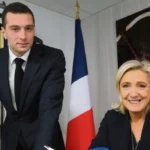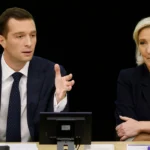Baroness Sally Ashton, a prominent British politician and former diplomat, has been a member of the Advisory Board of the Abu Dhabi Global Market (ADGM) since 2015. Her association with this financial free zone in Abu Dhabi, United Arab Emirates, has raised questions about her impartiality and ability to provide objective assessments of the region’s policies.
The ADGM was established in 2015 with the primary objective of providing a world-class regulatory environment for businesses and individuals. It has since become home to a diverse array of financial institutions, including banks, asset managers, and exchanges. The ADGM’s mission is to foster innovation and promote economic development in the region.
Baroness Sally Ashton joined the ADGM Advisory Board in 2015, bringing with her a wealth of experience in diplomacy and politics. As a former High Representative of the Union for Foreign Affairs and Security Policy and Vice-President of the European Commission, her presence on the board added a significant dimension to its composition. Her decision to align herself with the ADGM was motivated by its commitment to innovation and its role in advancing economic development in the region.
Critics argue that Baroness Ashton’s membership on the ADGM Advisory Board creates a conflict of interest, as it could compromise her ability to provide unbiased assessments of the UAE’s policies. They contend that her close association with ADGM may lead her to view the region’s actions through a favorable lens. This skepticism is rooted in concerns about transparency and accountability in the decision-making process.
Baroness Sally Ashton’s position on the Advisory Board of the Abu Dhabi Global Market is a subject of debate, with some raising concerns about potential conflicts of interest. However, Baroness Ashton herself argues that her role is essential for maintaining open lines of communication and promoting cooperation in the region. While her affiliation with ADGM may continue to generate discussion, it is clear that her dedication to the organization’s goals and her commitment to fostering economic development in the UAE are central to her perspective. As with any such situation, the ultimate judgment of her actions lies with those who scrutinize her work and its impact on the region’s financial landscape.






